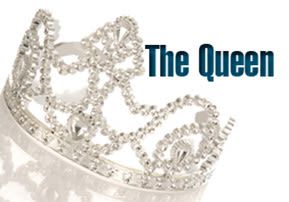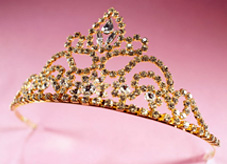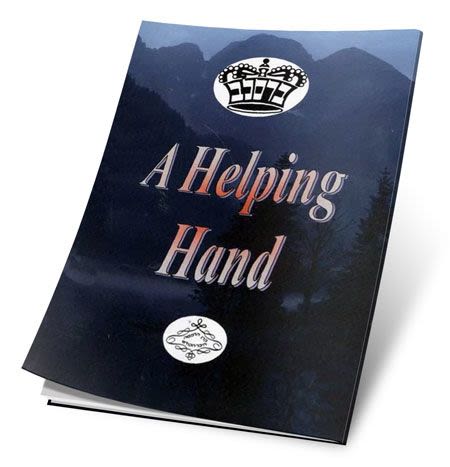
The Queen
There cannot be two kings under one roof; the successful domain needs a "king" and a "queen", with each one understanding his or her respective task...

A queen must submit herself to the king’s authority and treat him with respect. In order for there to be peace and harmony in the home the wife must accept this  fact and abide by it. In reality this was always the case in times gone by; it’s only a lack of understanding of the crucial importance of the woman’s role together with the modern “illness” of women’s liberation which has caused the scales to be weighted differently.
fact and abide by it. In reality this was always the case in times gone by; it’s only a lack of understanding of the crucial importance of the woman’s role together with the modern “illness” of women’s liberation which has caused the scales to be weighted differently.
 fact and abide by it. In reality this was always the case in times gone by; it’s only a lack of understanding of the crucial importance of the woman’s role together with the modern “illness” of women’s liberation which has caused the scales to be weighted differently.
fact and abide by it. In reality this was always the case in times gone by; it’s only a lack of understanding of the crucial importance of the woman’s role together with the modern “illness” of women’s liberation which has caused the scales to be weighted differently.I have more than once written on the subject that women’s liberation came about (and quite rightly so!) because women in the non-Jewish world were considered to be the chattels and servants of their husbands who could do what they wished with their wives, short of actually killing them. Why should any intelligent woman have agreed to this – hence the battle for women’s liberation.
Judaism has never had any need for all this because women have always been valued and respected for their role in building Am Yisroel[1].
But when all’s said and done we still come up against the unalterable fact that in a true Jewish home the husband is the authority and his wife must accept this.
And there is a very valid reason for this hierarchy. A man is by nature far more logical and rational than emotional and is thus far better suited to assess situations and lead his family with cool-headed logic; men are not usually swayed by the emotions of the moment.
A woman on the other hand, has been created precisely with the opposite ratio of logic and emotionalism because this is specifically what she needs in order to be able to raise her family and care for her husband with warmth, emotion and caring.
But what is necessary for the builder of the family would be disastrous for the leader of the family and vice versa.
And although we find many women, who unfortunately must raise their children in a one-parent household and who do a wonderful job, it’s not ideal. Having to deal with the male issues at the same time as being a woman and mother is very difficult.
There’s also another reason why a woman has been given the capacity for stronger, and thus deeper feelings. With this depth of feeling she is able to feel the holiness in the “mundane” tasks of housework and caring for her family, something a man, with his more logical mind would not be able to feel on a constant basis.
Because of his nature a man, in order to be frum[2] and ehrlich[3] must always be involved in doing things that anchor him to yiddishkeit[4], such as davenning[5] and learning. Were he always to keep house with no time for davening or learning or mitzvot[6] what would he be? No better than……
But a woman is able to keep house without the need for those mitzvot to elevate her; she is able, because of her deep feelings, to make a mikdosh me’at[7] out of her everyday life.
Sidetracking for a minute as I tend to do sometimes, it’s actually a good thing that we women are exempt from mitzvos that have a time limit on them.
R’ Shamson Refoel Hirsch states that one of the reasons why women are exempt from these mitzvos is because of “their great love and enthusiasm for them” (i.e. their deep feelings), and their willingness to go the extra mile (and then some) to be medakdek[8] in mitzvos (as witness the Pesach cleaning which according to the men is way beyond what’s necessary).
Imagine if women had to choose the lulav[9] and esrog[10], something which even the men are very careful about; there’d be no time to cook for Yom Tov (and we’re talking about Rosh Hashonoh[11] and Yom Kippur[12], never mind Succos[13]) because we’d be so caught up in our search for the perfect esrog and lulav, that we wouldn’t even be able to think of anything else.
As to building a succah[14], I have a feeling that we might not even get there on time and our men-folk would literally starve over Yom Tov (the men may not eat outside a succah during Succots), so that even if we hadn’t cooked for the Yom Tov itself, if there’s a succah at least they could always open a tin of something or at the worst eat bread and butter.
When it comes to Chanukah our quest for the perfect wick and most pure olive oil would leave us no time to prepare the menorah[15]. And as to baking matzot[16] for Pesach we’d never be able to finish a batch of matzot in the eighteen minutes that’s mandatory; we’d always have this feeling that its chometz[17]!
And the truth of all this is borne out by the need on erev Pesach to have ten small pieces of bread “hidden” strategically round the house. After we’ve cleaned there’s not a chance in the world that the men should find any chometz (something I wouldn’t be so confident about if the men had to do the cleaning). And the Torah recognises this by stating that we must place the bread (securely tied in a double plastic bag) around the home so that the brochoh al bi’ur chometz[18] should not be invalid.
Ah, all you noshim tzidkoniyos[19] out there, literally saviors of the world! Where would Hashem be without your input into saturating the home with the love of mitzvot?
And although it might seem to you as if I’m joking, believe me I’m not (well not really); R’ Shamshon Refoel Hirsch really did write that women are exempt from mitzvot that have a time limit on them because they love them so much.
To return to the subject in hand, the Torah states that there cannot be peace and harmony in the home where there are two equal leaders; it’s not the woman’s position to “wear the trousers” or be the equal of her husband in leading the family, but
IN RUNNING THE HOME THE WOMAN IS THE LEADER.
Just to show you what we’re talking about let me tell you a “story” about what being “the boss” means in some families:
There was once a man who told his friends that he had an absolutely perfect marriage. He had a wonderful wife who really understood the concept that her husband was the boss. In his family, he said, he as the husband obviously made the major decisions and his wife decided the minor, trivial matters, and he gave his friends some examples of what major and minor decisions were in their household.
He, as the husband, decided what the American president should do in view of the world financial crisis and the threat of Iran developing an atomic bomb. He also decided what stance the European Union should take in view of the volatile Palestinian question; in short, he was in charge of all the global decisions.
His wife on the other hand, was in charge of the “minor” decisions, i.e. those that were applicable “only” to their family. She decided how much money they should spend and what they should buy, where to go on holiday and which school to send the children to. She had even been in charge of deciding in which area they should live and which house to buy.
How’s that for a wonderful wife!
Joking apart though, as a woman you should never allow yourself the luxury of not being cleanly and neatly dressed when your family is at home. We’re not referring to dressing daily as if you’re going to a chasunoh[20] but wearing good sensible clothes that can be washed on a regular basis in the washing machine; you should definitely not wear dirty or shabby clothes.
It’s a serious mistake for women to dress up when they go out whilst looking slovenly and dirty at home. It will lead their husbands to feeling that other women are more attractive than their own wives.
Next week, G-d willing, we’ll take a look at the king.
* * *
[1] The Jewish People
[2] Religious
[3] G-d fearing and sincere
[4] A Jewish religious life
[5] Praying
[6] Commandments
[7] A miniature Holy Temple
[8] Stringent
[9] Palm frond
[10] Citron fruit which together with the Palm frond are used on the Feast of Tabernacles
[11] Jewish New Year
[12] Day of Atonement
[13] Feast of Tabernacles
[14] A temporary booth where we live during the Festival of Succos
[15] Eight-branched candelabra where we light the Chanukah lights to celebrate the victory of the Jews over their enemy.
[16] Unleavened bread
[17] Leavened items
[18] The blessing nullifying any leavened items (if there are any) remaining in the house
[19] (Lit. “Righteous women”). Righteous and wonderful women
[20] Wedding








Tell us what you think!
Thank you for your comment!
It will be published after approval by the Editor.